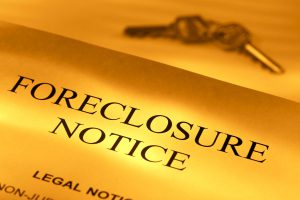 In general, homeowners facing foreclosure, as the legal owners of the property, are allowed to stay in possession their homes up until the day of the foreclosure sale itself, if they choose. Judicial foreclosure, the process utilized in New York where I practice, can take anywhere from 12-18 months to complete. Just because a default has occured does not mean that all is lost. Even after the initial loan default, a homeowner is given a period in which they can cure their default and reinstate their mortgage. This is called the “redemption period”. During this time, they have the opportunity to raise the money necesary to repay their default, and upon payment, their mortgage in reinstated and they retain ownership of their home. Regardless, a homeowner is allowed to continue living at the property throughout the entire foreclosure process.
In general, homeowners facing foreclosure, as the legal owners of the property, are allowed to stay in possession their homes up until the day of the foreclosure sale itself, if they choose. Judicial foreclosure, the process utilized in New York where I practice, can take anywhere from 12-18 months to complete. Just because a default has occured does not mean that all is lost. Even after the initial loan default, a homeowner is given a period in which they can cure their default and reinstate their mortgage. This is called the “redemption period”. During this time, they have the opportunity to raise the money necesary to repay their default, and upon payment, their mortgage in reinstated and they retain ownership of their home. Regardless, a homeowner is allowed to continue living at the property throughout the entire foreclosure process.
If the balance on your mortgage(s) greatly exceeds the present market value of your home, and you have concluded that your can no longer afford to support the mortgage payments, one of the most effective ways to get more time to stay in your home during a foreclosure, as well as deal with all of your other debts, is to consider declaring bankruptcy. While it may not be the right decision for everyone, the filing of a bankruptcy petition imposes an automatic stay on all creditors, including your mortgage holder. This means that the foreclosure proceedings will be put on hold for a specified amount of time. In most instances, filing Chapter 7 bankruptcy can delay the foreclosure proceeding for approximately 3-6 months. This is in addition to the time that foreclosure process usually takes to complete. The goal of this strategy is to file the Chapter 7 bankruptcy sooner rather than later. In this way, since you will no longer responsible for paying the mortgage, you will now have the opportunity to begin to put aside a reserve fund that you will be able to use to secure new living arrangments once the foreclosure is completed. Please note however that so long as you remain in possession of your home, you will still be required to maintain your regular payments for the utilities servicing the property, as well as your homeowners insurance.
Others may be able to save their property by filing for Chapter 13 bankruptcy. There are many benefits to filing Chapter 13 in this situation. In Chapter 13, you are given the opportunity to work out a payment plan with your mortgage lender, as well as your other creditors, for a period of up to 5 years. This means that so long as you “hold up your end of the bargain” and fulfill your obligations under your Chapter 13 Plan, you can remain in your home indefinitely. Chapter 13 may also be used to eliminate the payments on your second or third mortgage. That’s because, if the balance of your first mortgage exceeds the present market value of your home (which is possible in this market if the home has dropped in value), you may no longer have any equity with which to secure the junior mortgages. In this situation, a proceeding can be brought to “strip off” the second and third mortgages and re-categorize them as general unsecured debt (like credit cards) which, under Chapter 13, takes last priority and are often paid only pennies on the dollar.
If you are facing foreclosure I want you to make the best informed decision possible and understand all of your options, Contact me today.
 What Makes Me Different From the Others?
What Makes Me Different From the Others?